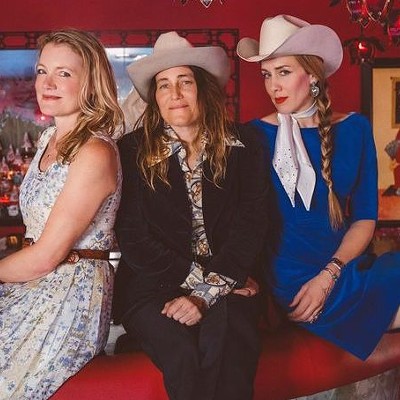When we discuss forward thinkers in rock music, Pete Wentz isn't a name that comes to mind. That's probably because, if you're like a lot of people on the Internet, the mention of his name will cause you to groan and/or think of the word "douchebag." While you may not like him on a personal level, his dealings as the head of Decaydance Records are interesting.
In a lot of ways, Decaydance was a rap label that just happened to feature pop-punk and emo acts. They had an image (goofy mid '00s pop rock); the artists frequently collaborated and toured together; Fall Out Boy even put out a mixtape.
There's a lot of chatter about the place of rock music in 2012. They say it's irrelevant, stale and doesn't sell. Pop music is king, EDM is the rising star and hip-hop is the music of the youth. Rock is just a relic of a different age.
So if you're a rock band that aspires to more than getting a daytime slot at Buzzfest, what do you do? Well, perhaps you get past your personal dislike of Wentz and follow his lead. If you can't beat hip-hop, why not adapt some of their its as your own?
Step One: Have a persona: There are more rock stars outside of rock music than there are in it, which is unfortunate, because the public likes personality. The major figures in rap are easy to describe: Lil Wayne is a Martian; Rick Ross is the ultimate hustler; Kanye West is the creative manchild; Nicki Minaj is Barbie with a personality disorder.
Personality is something that comes out in a lot of forms. It's how you handle questions in interviews. It's in the songs you write. It's in your stage banter.
That's not to say you have to have a gimmick. Your persona, ideally, is just a bigger version of how you are as a person. You don't have to paint your face or cross-dress or walk around with a parrot on your shoulder -- unless that's something you would do anyway. The important part of being larger than life is still being you at the same time.
Step Two: Have a posse: Networking has always been a part of the music industry. Whether it's getting shows or just having a couch to crash on when you're on the road, making friends with your fellow musicians is typically a smart move.
But why keep those connections hidden away?
Whether the connection is regional or a shared sound, let people know that your band and another band roll together. Talk them up in interviews and have them do the same for you. Playing in a city a few days before they are? Let everyone at your show know about the other show. Tour together. Not only will you have your fans, but the other band's fans will probably start following you, too.
Come up with a catchy name that will look good on a shirt. Make your fans feel like they're part of something bigger.
Step Three: Embrace the present: One of the reasons rock music has trouble connecting to the masses is the songwriting: What used to be timeless now feels archaic.
Rappers mention the present all the time. There is an immediacy to their words that doesn't exist in rock music. They mention Twitter and Facebook; current events pop up in punch lines; the lyrics feel like they belong in the now.
Think outside the box when you're songwriting. Maybe instead of waiting for the phone to ring, you're waiting on a text. You don't see your crush out with another guy; you see her relationship status change. Things aren't as sad as when your dog died; you're as sad as Junior Seau's mom.
Don't force the references, though; you want things to feel organic.
Step Four: Use guest appearances: Writing ten songs every year isn't hard. Writing ten great songs every year is. There are a lot of great bands with albums that fall apart because the single is solid but the rest is filler.
So work with other people. Make those filler tracks something special by getting a different set of ears on them. Maybe something that's stalled will inspire someone else and take a boring track somewhere exciting.
Bring in someone to share vocals or lay down a guitar part. Write songs with other people and see how they work. Don't reject collaborations because another band isn't part of your posse or they're from a completely different genre.
Collaboration also lets you experiment with styles that you wouldn't normally get to play with. Maybe you've always wanted to write a ska song, or you want to experiment with live dubstep, or you want to make something creepy. Find people who are good at those things and work with them.
Step Five: Drop a mixtape: You release a single, put out an album, do three tours and then you're back in the studio. That's great, but how do you keep your name in people's ears while you're working on the next album?
Giving away music seems crazy at first, but remember: No one is asking you to give away the good stuff.
A mixtape doesn't have to be anything complicated. Cover any songs live? Put it on the mixtape. Do some acoustic tracks during a radio interview? Put it on the mixtape. Have friends that like to do remixes of your songs? Put it on the mixtape. Have a demo for your next single? You get the idea.
People love free stuff, and mixtape is an easy way to get people to take a chance on you. If you believe in your material, take the risk: If people like what they hear, they'll be more likely to give you a chance when you release your next album.
Not only that, but people talk about people who give things away, and there's no such thing as bad press.
Follow Rocks Off on Facebook and on Twitter at @HPRocksOff.






